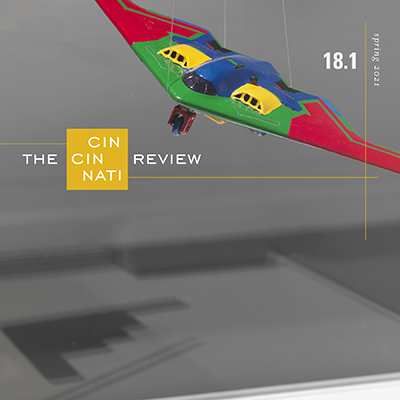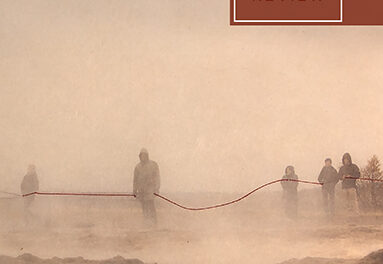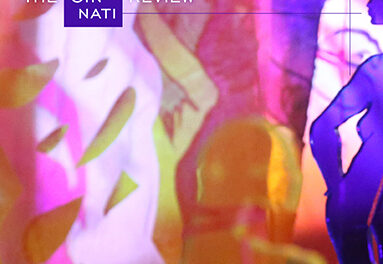—Fort Knox, Kentucky, June 2002
Army Basic Training: we march and sing cadence everywhere we go. The chow hall. The motor pool of tanks. The obstacle course. Whether the march lasts two minutes or two hours, we sing, and depending on the drill sergeant, the cadence can involve anything from love of army to homesickness, from war to women. For Drill Sergeant C., who’s tall with a deep bellowing voice, it’s mostly women. He takes wide, open-toed steps since full strides with his long legs might rush the song. Each verse’s line begins with all our left boots hitting the ground.
See the lady dressed in red, C. yells.
See the lady dressed in red, we call back, raising our inflections on the last syllable. We know what comes next. We know hundreds of these songs. Makes her living in the bed—Makes her living in the bed—
*
In 2013, years after leaving the military, I come across a poem by Robert Hass, “Winged and Acid Dark.” It involves two officers and an unnamed woman somewhere in 1945 Berlin. Hass isn’t explicit about what’s going on, but the poem gradually reveals itself. After one of the officers brings the woman “wine and sacks of flour,” Hass portrays what happens next in a fragmented narrative: “When the first one was through he pried her mouth open.” Then, Hass offers what initially seems like an aside, paraphrasing a statement from Bashō: “Bashō told Rensetsu to avoid sensational materials.” In the poem’s penultimate stanza, we read the “sensational material”: that soldier “pried her mouth open and spit in it.” After reading the poem, I went online and learned that this scene came from an anonymous German woman’s diaries during the Russian Army occupation of Berlin in 1945: A Woman in Berlin: Eight Weeks in the Conquered City. The next day I went to the library and checked out the book.
*
—Jalawla, Iraq, 2004
Walking past me, Specialist S. says, “Some hot girls in there.” For this raid, I’m outer security; I’m not supposed to go in. There’s no moon tonight. Beside a wire holding pen, I hear sheep breathing, their light hooves on the dirt. Flipping down my NODs, I see them come into focus: a dozen or so huddle in the pen’s far corner and stare, their eyes, through my lenses, bright emerald flicks. I hear shouts and screams from inside the mudbrick home. We’re somewhere south of Jalawla, ten miles off a paved road. This family’s farm stands alone in these dry hills where there’s no one else for miles. I wander toward the door and peek: a man’s sitting cross-legged on the floor, his hands zip-tied behind his back, a Kalashnikov and two magazines in front of him. Flashlights brighten and blur various spots in the room so I can’t see anything. Leaning in, I turn my neck and see two girls sitting, backs against the wall. Yes: I look. Surprisingly, their faces, chin to forehead, aren’t covered. Specialist C. stands in front of them smoking. The captain’s speaking to the terp and the terp’s speaking to the man on the ground. Other soldiers, searching, wander through halls and rooms. For a second, both girls glance at me: another Kevlar-covered head, black goggles with a wide blue lens, loaded pistol on my vest, pockets brimming with magazines, khaki-brown uniform, loaded M16 in my hands. Through my NODs, their faces are static green and I see the bright flash of teeth as their lips shake. They’re crying, very quietly. The tears leave a faint green trail on their cheeks. They’re maybe in their early twenties, late teens. I’m a few months past my twentieth birthday. I turn out of the doorway and walk back to the sheep pen.
*
Raids involved bursting into someone’s home, someone’s life, usually as they slept. I’d feel a rush of adrenaline as I made arrests, searched for weapons and IED materials—all these things, I hoped, would diminish the ways we might get killed. Because we spent so much time driving Humvees on roads as open targets for IEDs and RPGs, it often felt better, even safer, to be on the offensive. But whether any of us admitted it or not (it was usually just an afterthought) we also looked forward to seeing women. At home, most of my friends were starting college and dating. On our base, FOB Cobra, there were hundreds of men and three female soldiers. Maybe because I was constantly—in the Humvee, in the latrine, in our housing units—surrounded by men, seeing women reminded me of a previous civilian life. During the endless tedium of patrols and details and missions it was rare when I encountered a woman without a veil or any covering on her head; even more rare was the sight of a woman in less moderate clothing, a long colorful blouse or dress in a sea of black abayas. But in this context our gaze—a male gaze, yes, but also the gaze of occupiers, of empire—carried a meaning more sinister. At the time, I didn’t understand how my stare—the face of a twenty-year-old freshly graduated from high school and basic training—carried other implications. I had so much of my own tangible suffering to deal with: I missed my friends, my family, especially my mother; I was always exhausted, sometimes collapsing on my cot after missions, falling asleep in my boots and flak vest; I spent most waking hours worrying about IEDs and indirect fire attacks. Many times as I rushed into homes, even with my locked and loaded rifle, I’d be terrified. I worried about being shot, or worse, worried a door or room would be rigged with explosives, but this never happened to me. I didn’t think about my stare as the inchoate outset of male violence in war. I didn’t think about how my stare carried a history.
. . .










